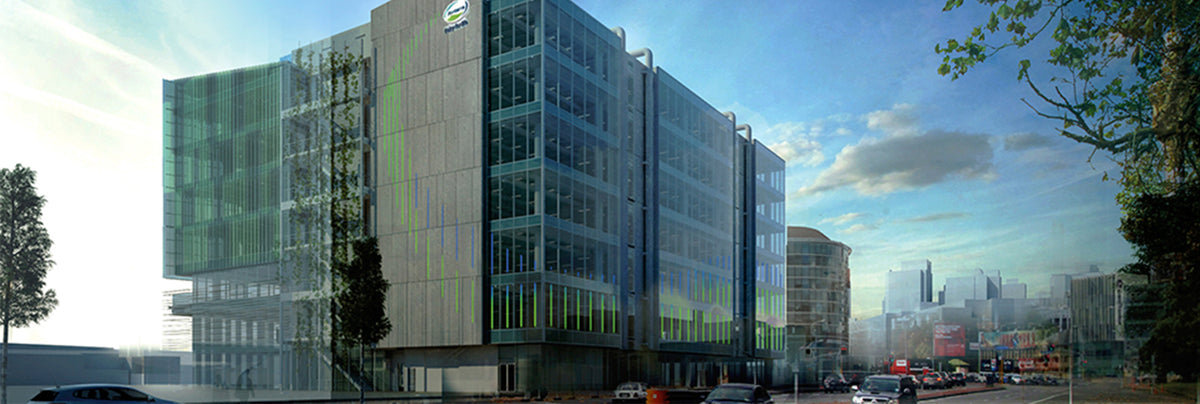How Agile Working Can Shape Organisational Culture

New technologies, demographic shifts and globalisation have irrevocably changed the world of work and means that now more than ever, organisations must embrace agile working or be left behind. Despite this, most organisations are still stuck in an out-dated 19th century model of a traditional 9-5pm format yet more agile models of work are required to meet the challenges of a volatile, uncertain, complex and ambiguous global economy. The Agile Future Forum describes agile working as a set of practices that allow organisations to establish an optimal workforce and provide the benefits of a greater match between the resources and the demand for services, increased productivity and improved talent attraction and retention. The benefits of agile working are clear: The Agile Future Forum's research revealed that agile working has a direct and positive impact on the bottom line: more innovative agile working practices could generate further value of 3-7% of workforce cost and sales uplift of up to 11%. How employees have occupied their individual workspaces has changed dramatically over the last few years. Workplace Trends research commissioned by Gensler revealed that in the average workplace, individual workspaces are occupied only 55% of the time on average. Organisations are offering options to work somewhere other than the company's head office at least to some employees. The Chartered Institute of Personnel and Development (CIPD) produced a HR: Getting smart about agile working report which found that one of the most popular forms of agile working was mobile/remote working, available in 70% of organisations.
"Gensler revealed that in the average workplace, individual workspaces are occupied only 55% of the time on average"
Employees see a considerable benefit in working in an agile way and are ahead of their organisations in their appreciation of this form of working, according to a survey by AXELOS global best practice of respondents around the world. The research found that 23.5% is the average difference between an individual's appetite for agile working versus the value an organisation sees in it. One of the main drivers for agile working is the ongoing digital revolution and changing demographics. Building the organisation of the future is now perceived by business leaders as their highest priority, according to the latest Deloitte's annual global human capital trends report. This is a call to action for firms to re-think and review their organisational structure to keep pace with digital disruption. Organisational culture is undoubtedly changed by the introduction of agile working. For example, the ability to work in an agile manner whether that is mobile working or even working remotely has an impact on the organisational culture. Yet for many organisations, the main barriers to agile working revolve around culture and mindset. Simply buying new technology and investing in new workspace isn't sufficient. Organisations need to engage with their workforce and empower their employees but this requires a shift in organisational culture and a change in the mindset of senior and middle management. Research has shown that managerial attitudes can prove to be one of the biggest barriers to agile working. The report by the CIPD report cited negative line manager attitudes as one of the main barriers to offering agile working to employees. This hints at trust issues that may be preventing employees from being given control over when and where they work. Deloitte is an example of a global firm that introduced a WorkAgility programme that provides individuals with a range of options around where and when they work but most importantly aims to refocus the teams on the outcome of the work, rather than the input in terms of working hours. By building the business case for agile working and working with managers to enable trusting relationships with their teams, the organisation is helping people take ownership of how they plan their working day while taking into consideration, the needs of the team and the client. One of the challenges facing organisations is how to ensure that a change in the working culture is supported by physical workspace and technology. Certainly that was the case for Fonterra, a global co-operatively owned dairy product company with its headquarters in New Zealand. The firm was faced with amalgamating employees from five locations into three. This presented an excellent opportunity for the company to move from a traditional desk layout to an activity -based working environment. It also provided a chance for Fonterra to develop a healthier and more collaborative working environment for its staff. The firm chose Targus, which provides advice and products to businesses and employees to create connected mobile working spaces to deliver this change in working culture and improve efficiency through agile working. Targus supplied a universal docking station for Fonterra which fully supported and enabled an activity-based working environment.
Technology has been a huge driver of agile working by opening up new patterns of working arrangements and times. However, unless the why and where of how employees work is supported by a change in the organisational structure and mindset of managers, it will fail. Hierarchical, command and control type organisational structures simply don't support agile working and mobile workspaces can give individuals a great deal of control over their lives. Only 14% of executives believe that the hierarchical traditional model makes their organisations very effective, according to Deloitte's annual Global Human Capital trends report.
One of the challenges facing organisations is how to ensure that a change in the working culture is supported by physical workspace and technology. Certainly that was the case for Fonterra, a global co-operatively owned dairy product company with its headquarters in New Zealand. The firm was faced with amalgamating employees from five locations into three. This presented an excellent opportunity for the company to move from a traditional desk layout to an activity -based working environment. It also provided a chance for Fonterra to develop a healthier and more collaborative working environment for its staff. The firm chose Targus, which provides advice and products to businesses and employees to create connected mobile working spaces to deliver this change in working culture and improve efficiency through agile working. Targus supplied a universal docking station for Fonterra which fully supported and enabled an activity-based working environment.
Technology has been a huge driver of agile working by opening up new patterns of working arrangements and times. However, unless the why and where of how employees work is supported by a change in the organisational structure and mindset of managers, it will fail. Hierarchical, command and control type organisational structures simply don't support agile working and mobile workspaces can give individuals a great deal of control over their lives. Only 14% of executives believe that the hierarchical traditional model makes their organisations very effective, according to Deloitte's annual Global Human Capital trends report.
"Only 14% of executives believe that the hierarchical traditional model makes their organisations very effective"
Targus commissioned research into The Future Of Work: Technology and People and found that the role of people and technology is inextricably linked and needs to be considered in all decision-making, especially when it comes to how people could work more effectively in new workspaces as well as making the most of the technology to achieve a better quality of work. The agility agenda will only become more important as we head into the future. The desire for an agile working culture is being driven increasingly by Millennials. A Pricewaterhouse Coopers NextGen study revealed that two-thirds of millennials would like the option to occasionally shift their working hours. But it's not just millennials. In fact, a significant number of employees from all generations felt strongly so strongly about wanting a flexible work structure that they would be willing to give up pay and delay promotions to achieve it. Alongside the technology, organisations need to ensure that leaders and managers are prepared for a change in working culture and that employees are fully on-board when it comes to embracing agile working.
Guest Post written by Karen Higginbottom (UK)


 Australia / New Zealand
Australia / New Zealand